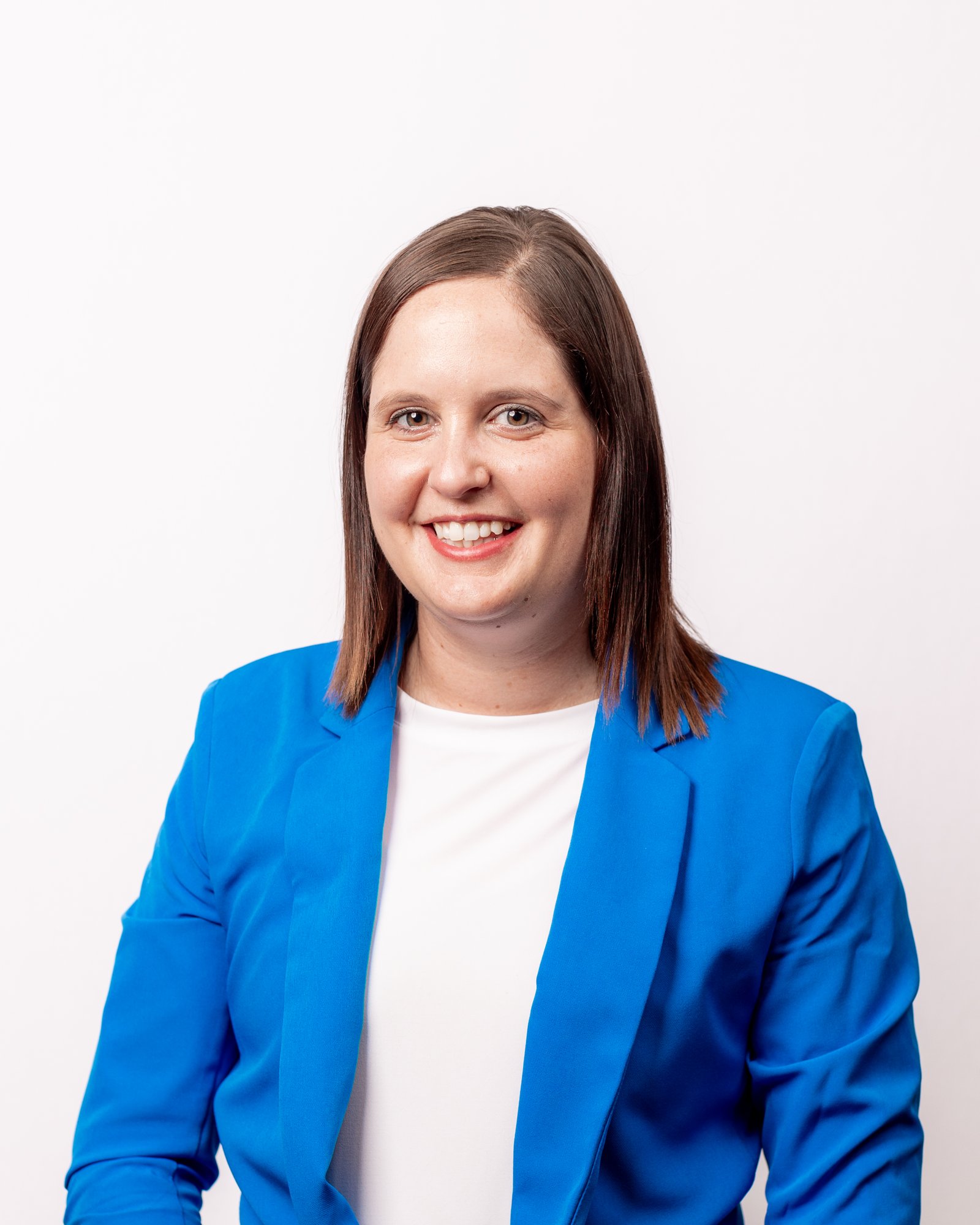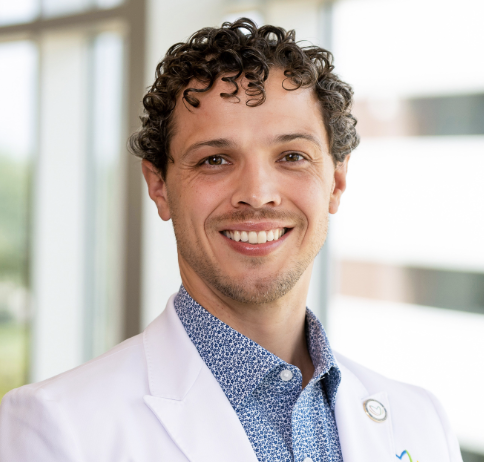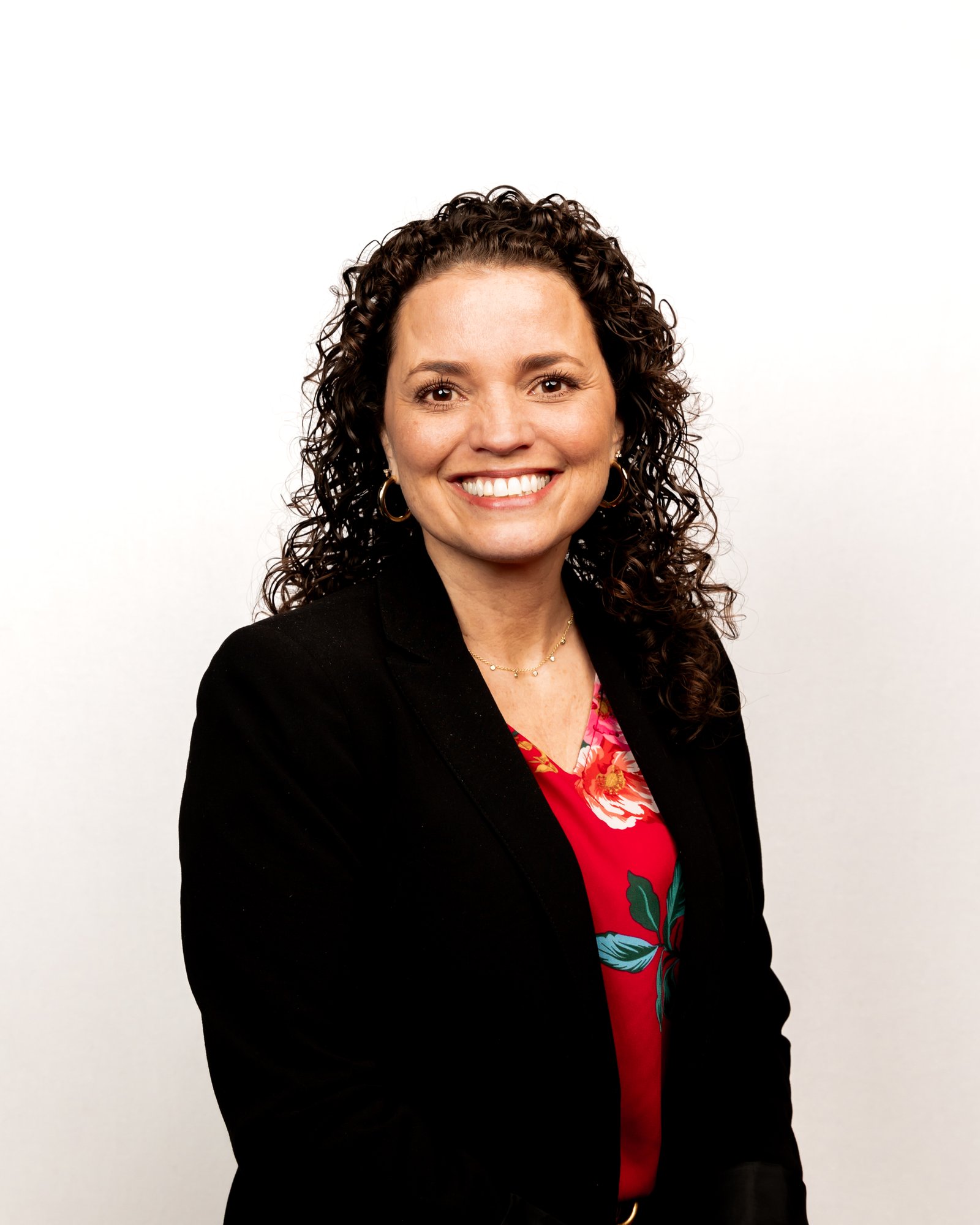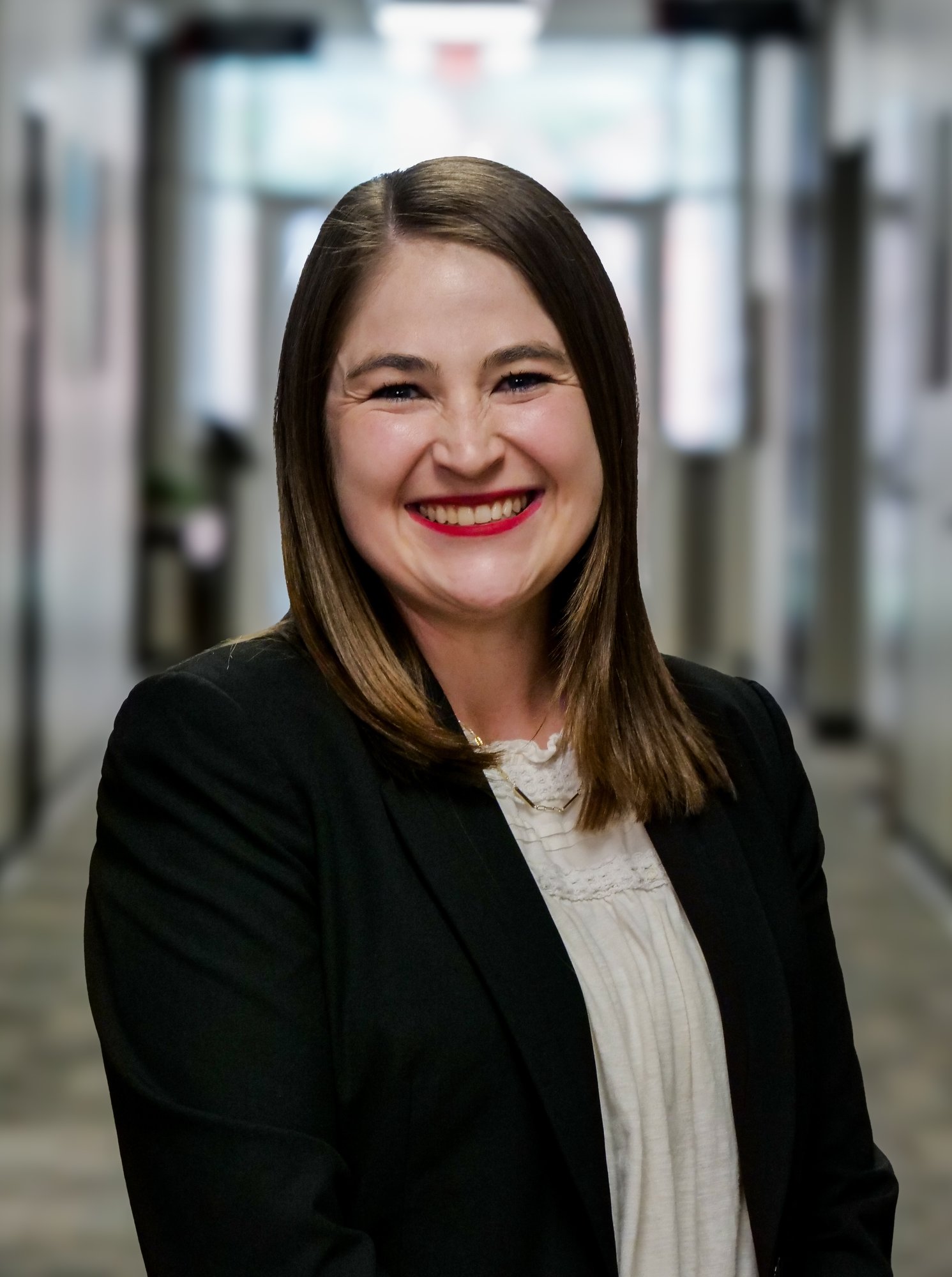-
Programs
Not Sure Where to Start?
- Associate Programs & Certificates
- General Studies
- Associate of Arts in Business
- Physical Therapist Assistant
- Professional Services & Certificates
- Special Education Bootcamp
- View All
- Undergraduate Programs
- Business Administration
- Criminal Justice
- Cybersecurity
- Education
- Family Studies and Gerontology
- Healthcare Administration
- Organizational Leadership
- Accelerated General Education
- View All
- Graduate & Doctorate Programs
- Doctorate of Education in Administration & Leadership
- M.A. Administration of Special Ed.
- M.A. Applied Psychology
- M.A. Educational Leadership
- M.A. Sports Management & Administration
- M.A. Teaching
- MBA, 12- 18 months
- MBA - Healthcare Administration
- Master of Organizational Leadership
- M.S. Counseling Psychology
- M.S. Exercise Science - Health & Human Performance
- M.S. Exercise Science - Wellness
- M.S. Instructional Design Technology
- M.S. Management
- M.S. Physician Assistant
- Alternative Certification (Teaching or Special Ed.)
- View All
- Resources
- Tuition & Aid
- Military
Physician Assistant
Become a highly competent, servant-oriented Physician Assistant.
Are you looking for a PA program in Oklahoma? Welcome to the SNU Physician Assistant page! Our PA program is located in Bethany, Oklahoma, a suburb of Oklahoma City. We are excited that you are interested in our program. The SNU PA program is an extension of the Church of the Nazarene's mission to make Christlike disciples and the University's mission to make Christlike disciples through higher education. We train PAs to practice medicine and to serve in a Christlike way. Please explore our webpage and reach out to us with questions.

Accreditation
PA Program
SNU has applied for Accreditation-Provisional from the Accreditation Review Commission on Education for the Physician Assistant (ARC-PA). SNU anticipates matriculating its first class in January 2027, pending receiving Accreditation-Provisional status at the September 2026 ARC-PA meeting.
Accreditation-Provisional is an accreditation status granted when the plans and resource allocation, if fully implemented as planned, of a proposed program that has not yet enrolled students appear to demonstrate the program’s ability to meet the ARC-PA Standards or when a program holding accreditation-provisional status appears to demonstrate continued progress in complying with the Standards as it prepares for the graduation of the first class (cohort) of students.
SNU is making every effort to meet all ARC-PA accreditation standards for the purposes of achieving Accreditation-Provisional status. In the event that ARC-PA does not award Accreditation-Provisiona
Pending accreditation provisional approval, SNU PA program graduates will be eligible to take the Physician Assistant National Certifying Examination (PANCE) and subsequently qualify for application for licensure in all U.S. states and territories. Some states may have additional requirements for licensure separate from the PA education. Individual graduates are responsible for achieving state-specific requirements not specific to PA training.
About
The program is located on the main campus of Southern Nazarene University in Bethany, Oklahoma. The program occupies over 12,000 square feet of designated space consisting of dedicated classroom space, lab space, clinical space, student space, and shared anatomy lab and Simulation lab spaces.
For inquiries, please email PAadmissions@mail.snu.
Program Mission
Coming soon! Check back for future updates.
Program Vision
Coming soon! Check back for future updates.
Program Goals
Coming soon! Check back for future updates.
Program Outcomes
Coming soon! Check back for future updates.
Program Competencies
Coming soon! Check back for future updates.
1.1 Demonstrate Christian respect for the dignity and privacy of patients while maintaining confidentiality in the delivery of team-based care
1.2 Develop meaningful, therapeutic relationships with patients and their families through Christlike service
1.3 Interpret information for patients to understand and make meaning out of the information conveyed to them, ensuring informed consent in all medical decision making.
2.3 Use current, valid medical literature to make evidence-based decisions on patient care
3.1 Recognize the potential impacts of the community, biology, spiritual life and genetics on patients and incorporate them into decisions of care
3.2 Understand the role structural disparities play in the management of health and illness
3.3 Provide Christ-like care to those with diverse cultural and spiritual health beliefs and practices, preferred languages, health literacy, and other communication needs.
4.1 Elicit and understand the stories of individual patients and apply the context of their lives (including environmental influences, spiritual influences, cultural norms, socioeconomic factors, and communication barriers) when determining healthy versus ill patients
4.2 Demonstrate insight and understanding about emotions and human responses to emotions that allow one to develop and manage interpersonal interactions
4.3 Organize and communicate information with patients, families, community members, and health team members in a form that is understandable, avoiding discipline-specific terminology where appropriate, and ensure understanding
5.1 Articulate one’s role and responsibilities to patients, families, communities, and other professionals
5.2 Direct the focus of the health care team to the needs of the patient over anyone/anything else
5.3 Recognize when continued patient care exceeds one's knowledge, skills and/or resources and make appropriate, timely referrals for safe and ongoing health management.
6.1 Articulate standard of care practice and develop an ongoing pattern of self-assessment and improvement to adhere to standard of care practice.
6.2 Practice with Christ-like humility, recognize personal and professional limitations to providing care and demonstrate a willingness to admit to and learn from mistakes, errors, and miscommunications.
6.3 Exhibit an understanding of the regulatory environment
7.1 Recognize that healthcare is a business
7.2 Promote the PA profession to the community, health care team, legislators, and educators
7.3 Appreciate the value of collaboration with physician and other members of the health care team.
Credential Offered
Upon completion of the SNU PA Program, graduates are awarded the Master of Science in Physician Assistant Studies.
Intercultural Learning and Engagement
The SNU PA program values each person created in the image of God and desires to be a community that embodies this belief. Supported by the Institutional climate that cares about inclusion and equity through refining of our character, the way we create culture, and the way we serve Christ, the SNU PA Program seeks to:
- Develop an academic community that welcomes, respects, supports and values the contributions and experiences of all people;
- Embody and model this value to students, and to train students to serve and competently care for individuals whose habits, practices, values and beliefs differ from their own.
These goals will be supported by intentional faculty recruitment and retention processes, student recruitment and retention processes, and curriculum development and competency measurements.
For more information about SNU ILE policies, please contact the office of Academic Affairs at 405-491-6600.
Program Facts
- The proposed SNU PA Program is a 24-month curriculum with two phases. The didactic phase is 12 months, and the preceptorship phase is 12 months.
- The proposed didactic phase curriculum is 70 credits (1494 contact hours)
- The proposed preceptor phase curriculum is 52 credits (1904 contact hours)
- The proposed class size for the SNU PA program is 36 seats.
- The approved degree to be awarded is the Master of Science in Physician Assistant Studies (MSPAS).
Additional facts will be posted here as the program develops.
Program Facilities
The SNU PA Program will be located on the main SNU campus in Bethany, OK. The University is renovating approximately 12,000 square feet of dedicated space for the program. Dedicated space will include:
- Dedicated faculty and staff office space
- Dedicated large classroom
- Dedicated wet/dry lab
- Dedicated clinical suite
- Dedicated physical exam lab
- Dedicated conference/small classroom
- Dedicated student lounge areas
Additionally, the PA program will share anatomy and simulation spaces.
Program Data
PANCE
The proposed SNU PA Program will prepare its graduates to sit for the Physician Assistant National Certification Exam (PANCE). Graduate performance on the exam will be posted here each year.
Matriculant Data
Demographic data about each class will be published here.
Attrition
Data specific to student attrition will be published here.
Program Goals
Data specific to the program's effectiveness at meeting its goals will be published here.
Admissions
Congratulations on your decision to pursue Physician Assistant training. PA school entry is competitive, and PA training is a lot of hard work. The result, however, is invaluable! SNU strives to train PAs to provide excellent care, and we are glad that you are interested in our program.
Please check back soon for further updates including prerequisites and the application process!
Cost of Attendance
SNU makes every effort to make PA education affordable and the cost of attendance transparent. It is the SNU PA program policy that the published tuition is the only cost to the student in terms of University charges for PA education. Please check back for updated information about the Cost of Attendance or email paadmissions@mail.snu.edu.
Financial Aid
Financial Aid options may be available through the SNU financial aid office: finaid@snu.edu or (405) 491 6310
Veterans Services
SNU is proud to partner with U.S. veterans and service members for their educational endeavors. Veterans interested in attending PA school at SNU are encouraged to reach out to the Office of Veterans Services to help navigate the specific needs and requirements associated with veteran and active service education.
Refund policy
Coming soon! Check back for future updates.
Meet our SNU Faculty
Jennifer Boyett, MHS, PA-C
Program Director
Mrs. Boyett is a 2012 graduate of the University of Oklahoma physician assistant program. Since that time she has practiced urgent care and family medicine. Jennifer served as assistant professor at the University of Oklahoma physician assistant program for three years prior to joining SNU. While at OU, she earned the 2020 PA faculty of the year award, the 2022 PA lecturer of the year award and the 2020 Dewayne Andrews MD Excellence in Teaching award.
Jennifer brings valuable experience to the PA organization and classroom. As the Director of Didactic Education, Jennifer will oversee the development and delivery of the classroom curriculum during the first 12 months of the program. Jennifer is a native of Choctaw, OK, and a graduate of East Central University. She and her husband live in Choctaw and have two sons.
Read LessMichael Johnson, MD, MBA, CPE, FAAP
Medical Director
Michael Johnson, MD, MBA, CPE, FAAP will serve as the founding Medical Director for the PA program. Dr. Johnson is a board-certified pediatrician who is currently serving as the Chief Medical Officer of the Bethany Children’s Health Center in Bethany, OK. Dr. Johnson has served as clinical faculty at the University of Oklahoma and has extensive experience in executive leadership development.
Allison Garrison, MHS, PA-C
Director of Didactic Education
Mrs. Garrison is a graduate of the University of Oklahoma Health Sciences Center Physician Associate Program. She has been practicing in primary care for the past 21 years. During that time, Mrs. Garrison served as faculty in physician assistant education for 7 years and spent several years in advocacy for PAs both locally and nationally.
Allison enjoys spending time with her large family, crafting, traveling, and serving.
Read LessHolly Parker, MPH, PA-C
Assistant Professor
Mrs. Parker is a graduate of Arcadia University Physician Assistant Program in Philadelphia, PA. Upon completing PA school, Holly served in the United States Air Force as a Captain, where she developed her clinical skills as a Family Medicine clinician. She served for 5 years and at the end of her service, transitioned to a position with the Department of Defense in Family Medicine and Aerospace Medicine.
Her most recent clinical experience as a PA-C, was in OKC in Neurology focusing on Parkinson’s Disease and other Movement Disorders. Holly relocated to OKC from Texas in 2022 with her husband and two dogs, a Great Dane and a Miniature Dachshund (who she likes to joke, balances out to 1 medium size dog). In her spare time, she enjoys reading, spending time with her husband, and spoiling her four nieces and nephews.
Read LessLauren Wilson, MMS, PA-C
Assistant Professor
Mrs. Wilson received her Bachelor of Science in Biology from the University of Oklahoma. She is a 2018 graduate of the Lincoln Memorial University Debusk College of Osteopathic Medicine Physician Assistant Program. Upon completing PA school, Lauren moved back to Oklahoma where she has been working in primary care for the last 6 years.
Lauren and her husband now live in Piedmont, OK with their daughter, son and 2 dogs. In her spare time Lauren enjoys spending time with her family and friends, playing board games and sitting outside.
Read LessStudent Policies & Handbooks
College of Professional and Graduate Studies
The SNU PA Program is housed within the College of Professional and Graduate Studies (CPGS). All policies in the CPGS Catalog apply to PA students unless the PA handbook specifies otherwise. Find the CPGS catalog here.
Physician Assistant Student Handbook
Coming soon! Check back for future updates.
Physician Assistant Clinical Handbook
Coming soon! Check back for future updates.
Select Policies
Coming soon! Check back for future updates.
Coming soon! Check back for future updates.
Coming soon! Check back for future updates.
Coming soon! Check back for future updates.
Coming soon! Check back for future updates.
All Coming soon! Check back for future updates.
Coming soon! Check back for future updates.
Coming soon! Check back for future updates.
Coming soon! Check back for future updates.
Coming soon! Check back for future updates.
Coming soon! Check back for future updates.
Coming soon! Check back for future updates.
Coming soon! Check back for future updates.
In Coming soon! Check back for future updates.
Safety, Security & Wellness
Student safety and security is of primary importance to the program and University. While on campus, students benefit from on campus police and extensive safety policies and procedures related to personal safety, personal health, inclement weather, fire and disaster. The campus police partners with Bethany, OK fire, rescue, and police for added support. For specific on campus safety measures, please visit the campus police website here.
SNU maintains the responsibility of student safety while students participate in clinical preceptorships off campus. Student safety is ensured through a regular site visit schedule, which among other things, assesses student safety. In addition, SNU contracts with all clinical sites to orient students to the safety measures in place at the individual site and for the provision of emergency medical care.
SNU Grievance Policy and Complaint Process
SNU title IX and Sexual Harassment Policies and Procedures: Policies and Procedures | SNU
SNU utilizes the third-party vendor Workshield for reporting and investigating sexual harassment complaints.
On campus counseling services are available to PA students through the Renew counseling center for a reduced office visit fee (Adult Studies rate). To learn about the Renew counseling center services and to contact the center, click here.
Disability services are available through the SNU office of Disability Services. Students in need of or requesting accommodations while enrolled in the PA program, must contact the office of Disability Services directly. The PA program faculty and staff are not involved in or privy to any student health or disability needs. For more information on available disability services, accommodations, or general disability questions, please contact the office directly.
An on-campus health center is available to PA students at a small office visit fee. The health center provides primary care services when the campus is open. It is important that students have a source for primary care while enrolled in the PA program. PA faculty cannot participate in the healthcare of PA students. Visit the Health Center page for more information.
Health Insurance is mandatory for all students while enrolled in the SNU PA program. While the SNU program seeks to promote the health and wellness of all PA students, personal health is the individual student's responsibility. Evidence of Health insurance will be required for admission and will be verified at various times during the program.
PA program faculty (Program Director, Medical Director, Principal Faculty) must not participate in the healthcare of any SNU PA student except in the case of emergency.
Exposure to Infectious Diseases or Environmental Hazards Guidelines
The best management of exposures is prevention. All students must undergo OSHA’s blood borne pathogen and other potential exposure training.
-
Latex can be found in many medical products. A Latex allergy may cause itchy skin and hives or even anaphylaxis, a potentially life-threatening condition that can cause throat swelling and severe difficulty breathing. If you have a known latex allergy, please notify the Program Director and exercise caution when using medical products. SNU will make every effort to identify latex products to students with allergies, however the ultimate responsibility for preventing allergic reactions belongs to the student.
Preventive measures to be followed when risk of exposure is involved includes the following universal precautions:
1. Use of latex or nitrile gloves as a barrier
2. Use of facemasks/face shields as a barrier
3. Use of gowns as a barrier
4. Use of vent or hood when appropriate
5. Following accepted safety guidelines such as never recapping a needle, never recovering a sharp, and communicating with others.
The following exposure protocols should be followed: (Taken from https://www.cdc.gov/):
As you work/learn, you may experience:
-
A needlestick or sharps injury.
-
An exposure to patient blood or other body fluid.
If any of these occur, take the following steps:
-
Wash needlesticks and cuts with soap and water
-
Flush splashes to the nose, mouth, or skin with water
-
Irrigate eyes with clean water, saline, or sterile irrigants
-
Immediately report the incident to your supervisor/preceptor/faculty member
-
Immediately seek medical treatment (urgent care, emergency department)
-
Notify the SNU PA program Clinical Coordinator as soon as possible
Students on SCPEs should follow this protocol and any additional protocols administered by the SCPE site.
This document does not include specific treatment guidelines as these are constantly being updated and should be decided between the student and the healthcare provider. In general, the student should consider exposure risk to HIV, Viral hepatitis, Tuberculosis, and any known infectious disorder from the host exposure.
Any cost incurred for the management of an exposure is the sole responsibility of the student.
SNU offers many on-campus exercise facilities for students to enjoy. The Sawyer center boasts an indoor track and a weight room that can be accessed when athletes are not in training sessions. The Broadhurst gymnasium houses a weight room, a basketball gym and a small gym (with pickleball courts.) Outdoor facilities include tennis courts/pickleball courts, sand volleyball, and a disc golf course.
SNU provides spiritual life services and counseling through the office of the Chaplain. For appointments please contact: bspindle@snu.edu, 405-717-6216
Campus Resources
-
Technology Support
Each student, upon enrollment will be issued a University e-mail address. The University e-mail address will serve as the primary form of contact between the University and the student. Students must check their e-mail often to ensure timely communication with the University and PA program.
In addition to e-mail, the University office of Information Technology manages internet access and security, Office365 for students, printing services, and the technology HelpDesk. Students looking for new technology hardware should consult the SNU IT website, as SNU negotiates student pricing on many products.

-
Canvas
The University uses the Canvas learning management system to assist in the delivery of curriculum. Each student will be given a Canvas account upon matriculation and will gain access to course material, assignments and syllabi through canvas.
.png?width=2121&height=1414&name=Blog%20(3).png)
-
Library
The R. T. Williams Library provides access to books, texts, journals, databases and study spaces. Librarians are available to help find resources and can assist with research needs.
Need a coffee, snack or a place to chill? The Library boasts a Starbucks with lots of snacks and other non-coffee drinks. There is ample seating to relax in or can be used for study.

-
Commons
The Webster Commons offers food options through the cafeteria upstairs or the grill downstairs. The bookstore, a chapel, and mail services are located in the Webster Commons.

-
Registrar
The SNU Registrar maintains all records of student course enrollment and student records in the form of transcripts. Students needing SNU transcripts can click here.
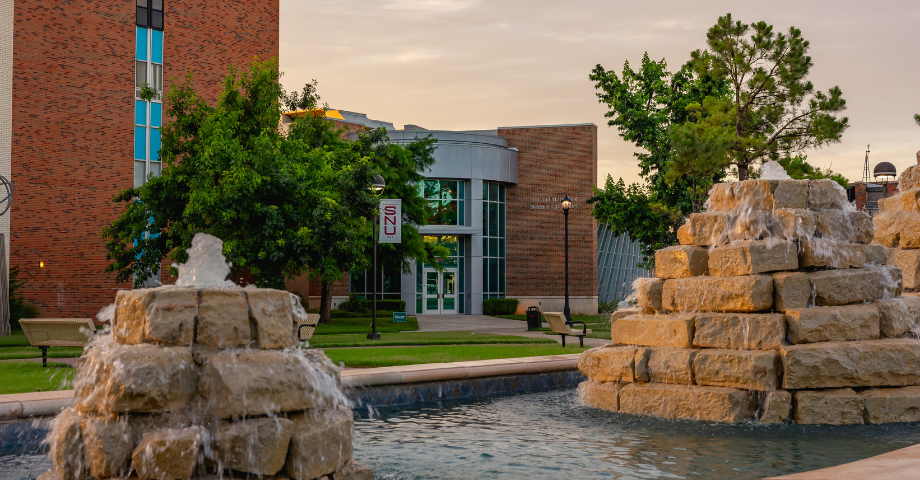
-
Campus Map
Need to figure out what is where? This campus map can help you out!
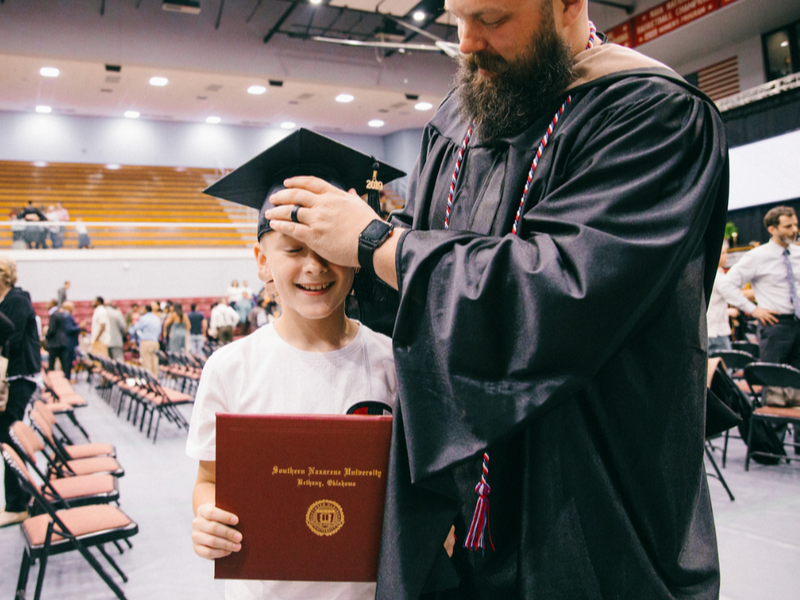
-
Professional Links

For Preceptors
Physicians and Physician Assistants interested in serving as Preceptors for 2nd year PA students should reach out to Jennifer Boyett – Program Director at jboyett@mail.snu.edu or (405)491-8182. Please see below for more information about precepting SNU PA students.
Thank you for your interest in precepting SNU PA students and being part of their education to become skilled, effective and compassionate members of the health care team.
Coming soon! Check back for future updates.
Coming soon! Check back for future updates.
Coming soon! Check back for future updates.
Coming soon! Check back for future updates.
Frequently Asked Questions
SNU has applied for Accreditation-Provisional from the Accreditation Review Commission on Education for the Physician Assistant (ARC-PA). SNU anticipates matriculating its first class in January 2027, pending achieving Accreditation-Provisional status at the September 2026 ARC-PA meeting.
Accreditation-Provisional is an accreditation status granted when the plans and resource allocation, if fully implemented as planned, of a proposed program that has not yet enrolled students appear to demonstrate the program’s ability to meet the ARC-PA Standards or when a program holding accreditation-provisional status appears to demonstrate continued progress in complying with the Standards as it prepares for the graduation of the first class (cohort) of students.
SNU anticipates matriculating its first class in January 2027, pending receiving Accreditation-Provisional status at the September 2026 ARC-PA meeting.
The SNU PA Program will be offered on the main SNU campus in Bethany, Oklahoma.
The University administration and PA program faculty are developing clinical partners for preceptorships across the City of Oklahoma City and the greater state of Oklahoma. Some partnerships are likely to be developed outside of the state of Oklahoma.
Please check back for further updates.
PA education is an extensive professional master’s degree program, and it is a full-time, on-campus endeavor which requires nights and weekends for study and preparation.
What sets the SNU PA Program apart from others is its mission. While all programs must meet the rigorous accreditation standards to train qualified and skilled PAs, each does it from its own perspective. SNU is a faith based institution whose mission is to make Christ-like disciples. The PA program mission is consistent with the University mission in training PAs to be compassionate and empathetic; treating others in a Christ-like manner. SNU PA students will be taught by, mentored by, and surrounded by Christian faculty who seek to honor Christ with the practice of medicine.
News
For up-to-date announcements and further information, please follow us on Facebook and X.
Request more information
Text With an Enrollment Counselor
Take your first step towards becoming an organizational leader to texting with an enrollment counselor today about your future







